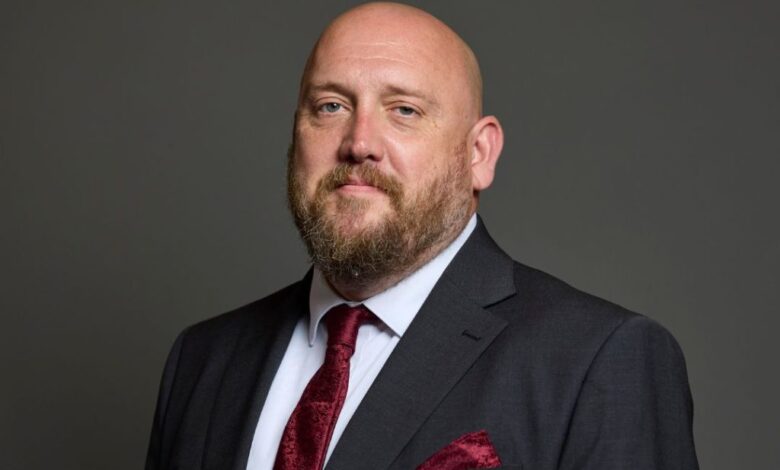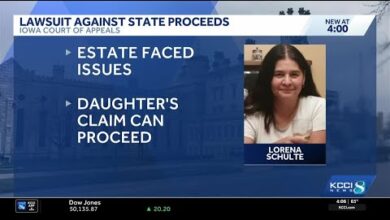Nursing MPs: Kevin McKenna says nurses have been ‘pushed so far’

Having beaten the odds to win what was considered a safe Conservative seat in the general election, a critical care nurse-turned-MP has said he hopes to be a voice for the nursing workforce at the top level of politics.
Kevin McKenna was elected as Labour Party MP for Sittingbourne and Sheppey, Kent on 4 July, winning by just 335 votes and overturning an entrenched incumbent’s majority of more than 24,000.
“Fundamentally, nursing is a real job. It involves blood, vomit and wiping people’s backsides”
Kevin McKenna
He described himself as a proud Project 2000 nurse, having trained at King’s College London’s Nightingale Institute in the late-1990s and completing placements at St Thomas’ Hospital, just across the river from his new workplace inside the Houses of Parliament.
Mr McKenna told Nursing Times that his exposure to nurses while visiting friends during the AIDS epidemic, an issue he said was close to his heart as a gay man, inspired him to work in the profession.
Specialising in critical care, Mr McKenna moved up through the nursing hierarchy, becoming a charge nurse, a leader for a post-anaesthesia care unit, before taking on a strategy post at NHS England.
His time in health strategy was briefly interrupted by a stint as a matron at the Nightingale Hospital in London during the Covid-19 pandemic, and he has also completed a Darzi Fellowship in clinical leadership.
Mr McKenna entered politics after his NHS England work left him wanting to create policy, rather than administer it, and after realising nurses lacked representation in government.
He added that the working hours of his non-clinical role allowed him more time and space to become engaged in politics and join the Labour Party, noting that most nurses lacked the flexibility to do this.
“[Working hours] is one thing which structurally excludes a lot of healthcare workers from getting involved with politics,” he said.
Read more from the nursing MP interview series
Mr McKenna said the lack of nurses in politics was a shame: “We have a much bigger understanding of the health agenda, and what we need to change it to really help people live healthier, longer and better lives.
“Fundamentally, nursing is a real job. It involves blood, vomit and wiping people’s backsides and it involves working shifts, teamwork and it’s really complex.
“The situation in the hospital or in the community often involves small-p politics, and you have a massive exposure to the general public, their issues and what really matters to them.”
One of hundreds of newcomers to parliament, including fellow Kent-based nurse MP Sojan Joseph, Mr McKenna said his new workplace was familiar, comparing it to an old hospital.
“It’s the age of the building, and lots of staff with decades of culture,” he said. “Weirdly, [parliament] is not completely alien.”
Mr McKenna, asked what his priorities would be post-election, said he hoped to facilitate improvements to nursing regulation, after the recent Nursing and Midwifery Council (NMC) culture review, which found instances of toxicity, racism and discrimination in the regulator.
“[The findings] seem to be shocking, but not necessarily surprising,” said Mr McKenna.
He continued, referring to difficulties facing the nursing workforce more broadly: “As nurses, you don’t expect to come onto a shift and have your lunch at lunchtime, even when you’ve got good leadership on the ward, not every day goes like that.
“But we know now that people have been pushed so far beyond any reasonable working practice, and so far away from delivering quality care, and we know how much trauma that’s causing, proper psychological trauma to colleagues.
“Getting us out of that hole is going to take quite a long time.”
He expressed a desire to be a “voice” in parliament for the profession to tackle the “root causes” of issues such as short staffing and working conditions.
His constituency’s greatest challenges, he explained, largely followed national trends with many related to health and social care.
Primary care and dentistry were, Mr McKenna said, important issues in Sittingbourne and Sheppey, with 2023 Nuffield Trust data showing that Kent had the worst ratios of GPs to patients in the country.
However, he added that other issues such as employment and transport needed to be fixed at the same time.
“They’re subsidiaries, leading up to the fundamental, which is primary care,” he said.
This article forms part of a three-part interview series with the new Labour Party MPs from nursing backgrounds. Interviews with Mr McKenna, Birmingham Erdington MP Paulette Hamilton and Ashford MP Sojan Joseph will be printed in the Nursing Times August 2024 magazine and online.







